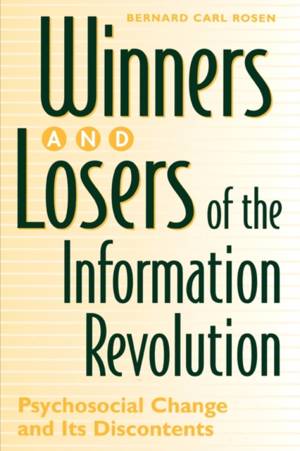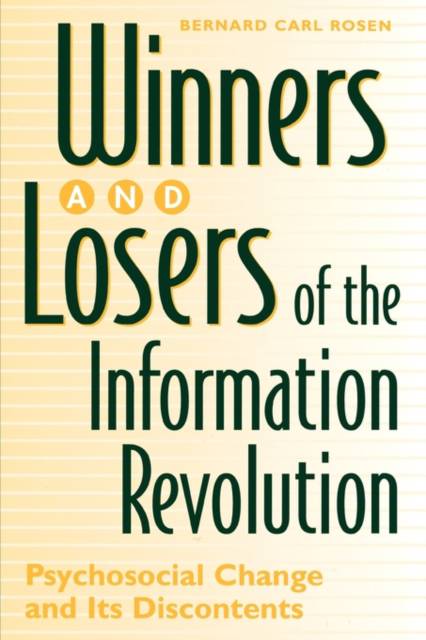
- Retrait gratuit dans votre magasin Club
- 7.000.000 titres dans notre catalogue
- Payer en toute sécurité
- Toujours un magasin près de chez vous
- Retrait gratuit dans votre magasin Club
- 7.000.0000 titres dans notre catalogue
- Payer en toute sécurité
- Toujours un magasin près de chez vous
Winners and Losers of the Information Revolution
Psychosocial Change and Its Discontents
Bernard RosenDescription
The second great transformation of our society in the modern era has demoted manufacturing to a position that is secondary to the service industries, thus originating today's information society. This volume examines how massive social change over the past few decades has created a new set of winners and losers and what this has done to society. The author rejects the orthodox explanations for the losers' plight--such as job stagnation, income inequality, and an increase in crime and violence--and argues that the main causes of success or failure in today's society are psychosocial. While today's losers lack the character structure and values that would help them adjust to change, the winners--the Chameleons--have acquired a character structure symmetrical with the needs of the new society.
This new elite, however, is not immune to anxiety and fear because of the contradictions and impossible demands that characterize what Rosen calls the Chameleon Complex and because different factions of the elite constantly fight to control culture and shape the nation's identity. Rosen puts contemporary social change in an historical context, showing that today's turmoil resembles the disturbances that have taken place whenever society has undergone rapid and fundamental social change.Spécifications
Parties prenantes
- Auteur(s) :
- Editeur:
Contenu
- Nombre de pages :
- 336
- Langue:
- Anglais
Caractéristiques
- EAN:
- 9780275962777
- Date de parution :
- 24-11-98
- Format:
- Livre relié
- Format numérique:
- Genaaid
- Dimensions :
- 164 mm x 240 mm
- Poids :
- 675 g

Les avis
Nous publions uniquement les avis qui respectent les conditions requises. Consultez nos conditions pour les avis.






